Explore the transformative impact of technologies on enhancing accessibility in the hospitality industry and discover their wide-ranging benefits.
The hospitality industry strives to create inclusive environments where every guest can enjoy a seamless and fulfilling experience. Accessible accommodations and services are essential for individuals with disabilities, and embracing innovative technologies is key to achieving this goal. In this article, we will explore how automation, including the use of technologies like TagPoint, can revolutionise accessibility in the hospitality industry.
Designing accessible spaces for all hotel guests
Automation can play a crucial role in enhancing accessibility by incorporating features such as automated doors, voice-controlled systems, and sensor-based lighting. These advancements improve mobility and convenience for guests with disabilities, promoting a more inclusive environment.
One example of automation-driven accessibility is TagPoint Inspections. These digital hotel inspections can help identify barriers or deficiencies in rooms designated for guests with disabilities. From wheelchair ramps and grab bars to accessible bathrooms and furniture placement, these inspections ensure that accommodations meet the necessary accessibility standards. By identifying accessibility issues, hotels can make the required modifications to create an inclusive space for all guests.
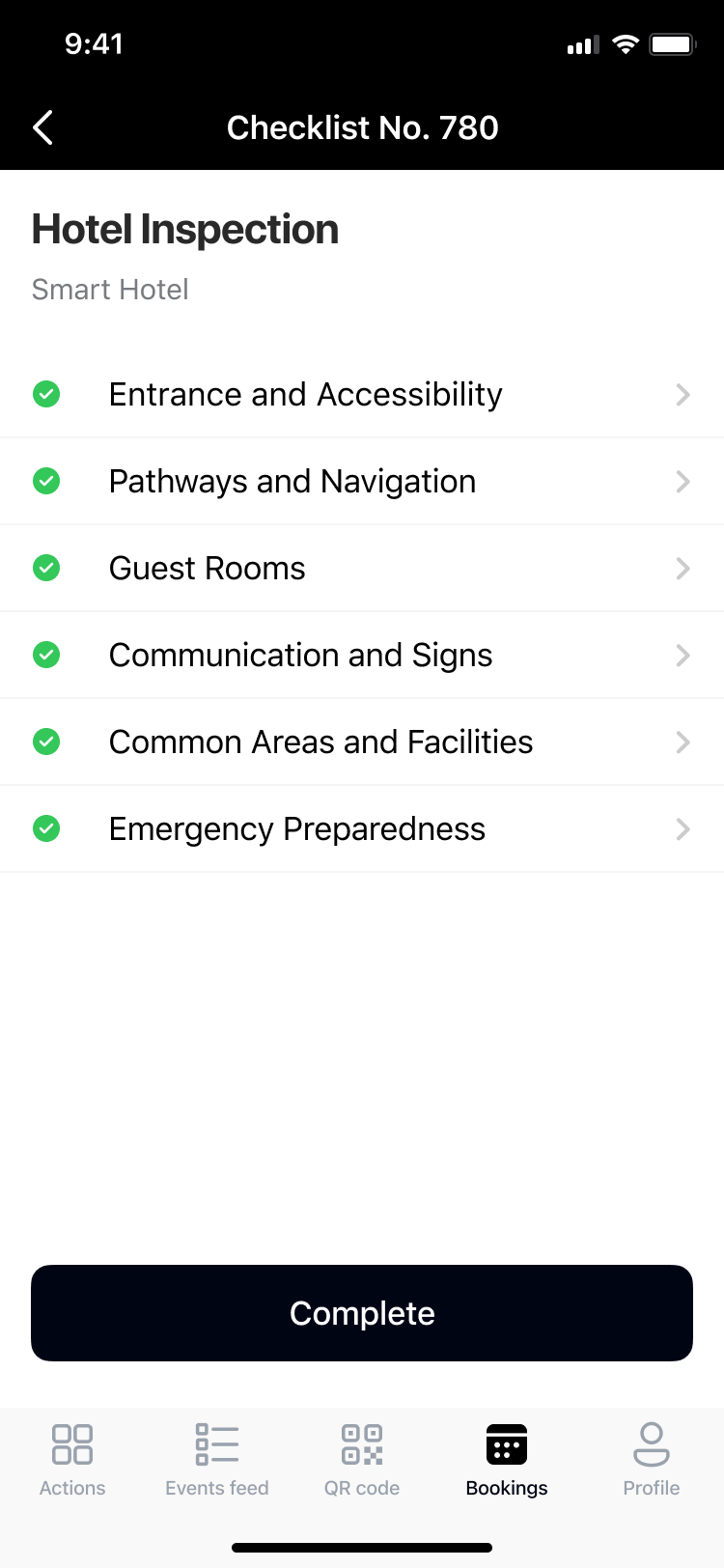
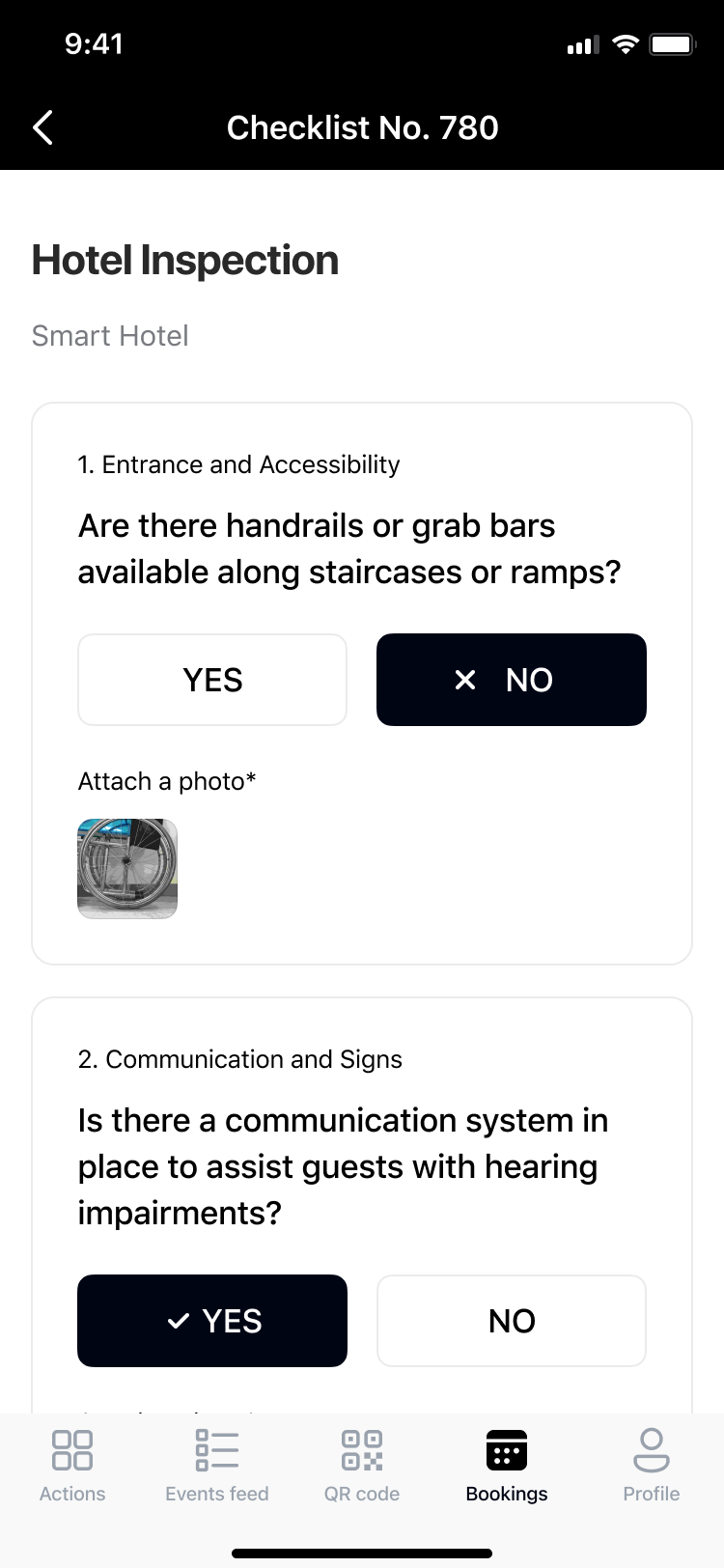
Example of a digital hotel inspection using the TagPoint app
Moreover, regular inspections also focus on maintaining safety standards. They verify that emergency evacuation routes are clear, fire alarms and emergency call systems are functional, and accessible pathways remain unobstructed. By addressing safety concerns promptly, hotels can provide a secure environment for guests with disabilities.
Automation-driven inspections also prevent the deterioration of accessibility features. By checking the condition of equipment such as wheelchair lifts or accessible showers, early identification of wear and tear enables timely maintenance or repairs. This proactive approach ensures uninterrupted use for guests with disabilities, promoting a positive experience during their stay.
Leveraging technology for personalised guest experiences
Automation technologies offer opportunities for hotels to provide personalised experiences for guests with varying requirements. In the context of accessibility, automation can be leveraged to enhance hotel room experiences.
Smart room controls are a prime example of automation for accessibility. These systems cater to individuals with mobility impairments, allowing them to adjust room settings easily. From controlling lighting and temperature to managing curtains and blinds, these technologies empower guests with disabilities to customise their environment based on their needs, promoting a sense of independence and comfort.
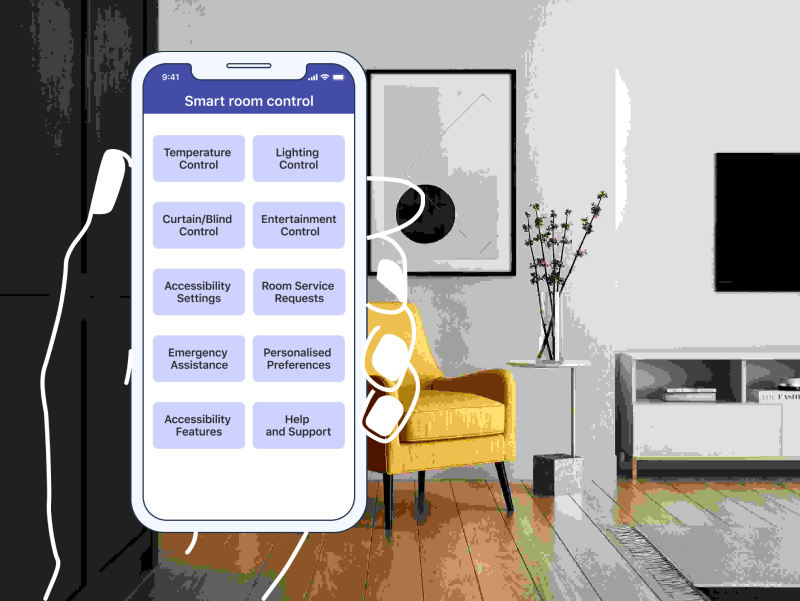 Example of opportunities with a smart room control system
Example of opportunities with a smart room control system
Additionally, automation can provide assistive devices that support guests with visual or hearing impairments. From visual alerts for doorbells or emergency alarms to captioning services on in-room televisions, these technologies bridge communication gaps and ensure equal access to information and entertainment.
Incorporating automation systems like TagPoint Service Requests further enhances accessibility in hotels. By utilising such systems, guests can request additional services and assistance conveniently, eliminating the need for traditional methods like phone calls or in-person interactions. This streamlined process ensures that individuals with disabilities have equal access to hotel services and support, enhancing their overall experience.
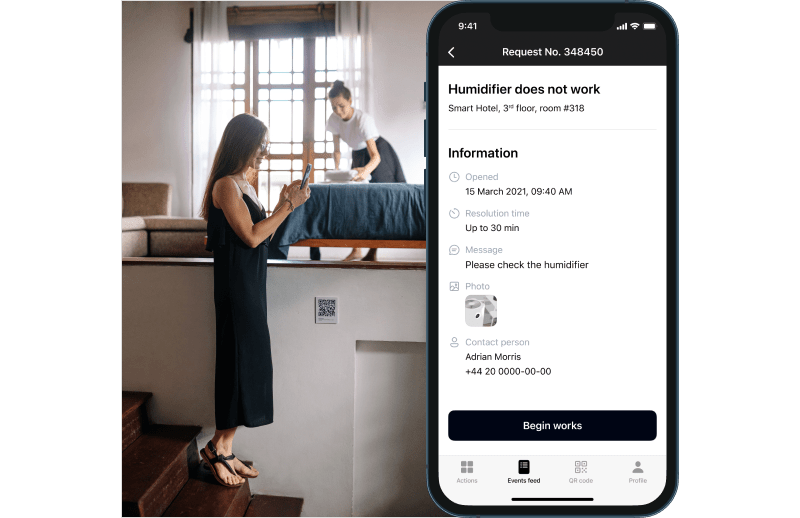 Hotel service request through the TagPoint app
Hotel service request through the TagPoint app
Faster communication for service delivery
Automation also empowers hotel staff to provide excellent service to guests with disabilities. Efficient and prompt communication is crucial in meeting the needs and preferences of these guests.
TagPoint Messenger is an example of an automation tool that facilitates communication between hotel teams. This feature enables staff members to communicate easily and efficiently, ensuring that requests for assistance or accommodations are addressed promptly. By streamlining internal communication, hotels can deliver a higher level of service to guests with disabilities, further enhancing their experience.
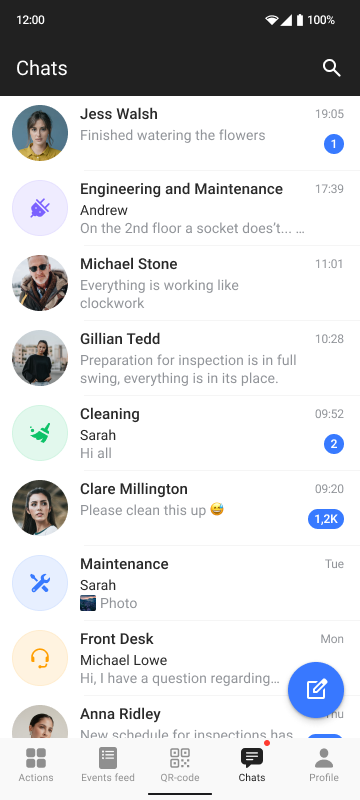
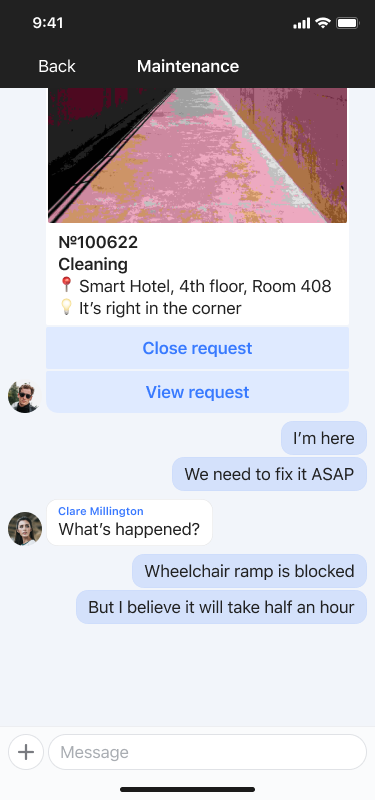
TP Messenger for quick communication
As the hospitality industry continues to advance, the integration of automation for accessibility will be instrumental in creating inclusive environments that cater to the needs of all guests. By embracing these technologies, hotels can enhance guest experiences and demonstrate their commitment to accessibility and inclusivity.




